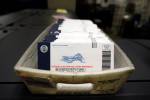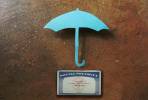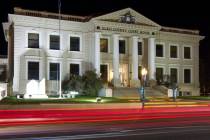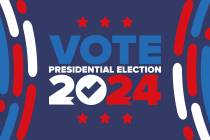Nevada jobless tax rate boosted 12.5 percent
CARSON CITY – Nevada employers got more grim news Tuesday.
State Employment Security Division administrator Renee Olson increased by 12.5 percent the unemployment tax rate that companies pay each year to provide unemployment benefits for laid-off workers.
The average increase amounts to $77 a year per employee.
On top of this, companies will be hit with a federal unemployment tax increase of $21 per employee in January.
But Olson also wants the Legislature to approve two other new state taxes – one to cover interest on the $676 million federal loan and the other to more quickly pay off the debt and bring the state back into solvency, giving it a cushion in case of another economic downturn.
Representatives of the Nevada Taxpayers Association, the Las Vegas Chamber of Commerce and the Reno-Sparks Chamber of Commerce all testified that the 12.5 percent state tax increase was an unpopular but necessary option that Olson had to make to begin paying down the federal loan.
“It is the only possible choice you can make,” Reno-Sparks Chamber of Commerce representative Tray Abney told her and a small group who attended Tuesday’s meeting.
“The decision was to try to do what we can to mitigate the amount of money we owe the federal government right now,” Olson explained later. “We continue to incur interest charges and we are doing nothing to build back our resources (that we need) to prepare for any future economic downturn. This will help us mitigate the problem, but it doesn’t solve our problem.”
After the meeting, Olson said she had submitted a bill to the Legislature to require employers also to pay the interest payments on the state loan with the U.S. Department of Labor. State government itself over the past two-year period paid $64 million in interest costs.
The federal loan was made to let the state cover costs of providing unemployment to laid-off workers during the recession. The state’s unemployment trust fund was exhausted during the recession as Nevada’s unemployment rate surpassed 13 percent. The interest total is expected to be $40 million to $48 million over the next two years.
Olson also said she wants the Legislature and Gov. Brian Sandoval to consider approving a special solvency tax or assessment on companies next year to pay off the federal loan more quickly and bring the state back into solvency.
Sandoval was not immediately available to comment on Olson’s request.
To be considered solvent, the state unemployment trust fund needs a surplus of about $1.1 billion.
The 12.5 percent unemployment rate increase approved Tuesday represents the average increase. Olson increased the average tax rate from the current 2 percent to 2.25 percent.
But depending on how often companies lay off workers, the actual tax rate varies from 0.25 percent to 5.4 percent. New companies pay a tax rate of 2.95 percent.
Under the new tax rate, 3,921 companies will pay the highest rate of 5.4 percent and 7,349 will pay the lowest rate of 0.25 percent.
Olson also expressed concern that if Congress does not resolve the “fiscal cliff” of automatic tax increases and spending cuts that are scheduled to go into effect in 2013, then 25,000 laid off workers in Nevada will receive no additional benefits after Jan. 2.
These are workers who have already exhausted their 26 weeks of state unemployment benefits and now are receiving federal paid benefit extensions. They now can receive up to 73 weeks of benefits, but can count only on the 26 weeks of state benefits unless Congress continues the federal extensions.
As it stands now, another 32,000 Nevadans still are receiving state benefits. But 1,000 of them a week are reaching the 26-week maximum and will not receive additional benefits without congressional help.
Since laid-off workers receive as much as $402 a week, Olson said Nevada will be hurt economically if benefits are not continued.
If the state Legislature does not approve a special solvency tax next year to get the agency out of debt, Olson and her staff do not expect the state to repay the loan before 2016 and bring the trust fund into solvency before 2018 at the earliest.
Those dates could be extended if Nevada suffers a new recession and must borrow more from the federal government, she said.
Contact Capital Bureau Chief Ed Vogel at evogel@reviewjournal.com or 775-687-3901.


















